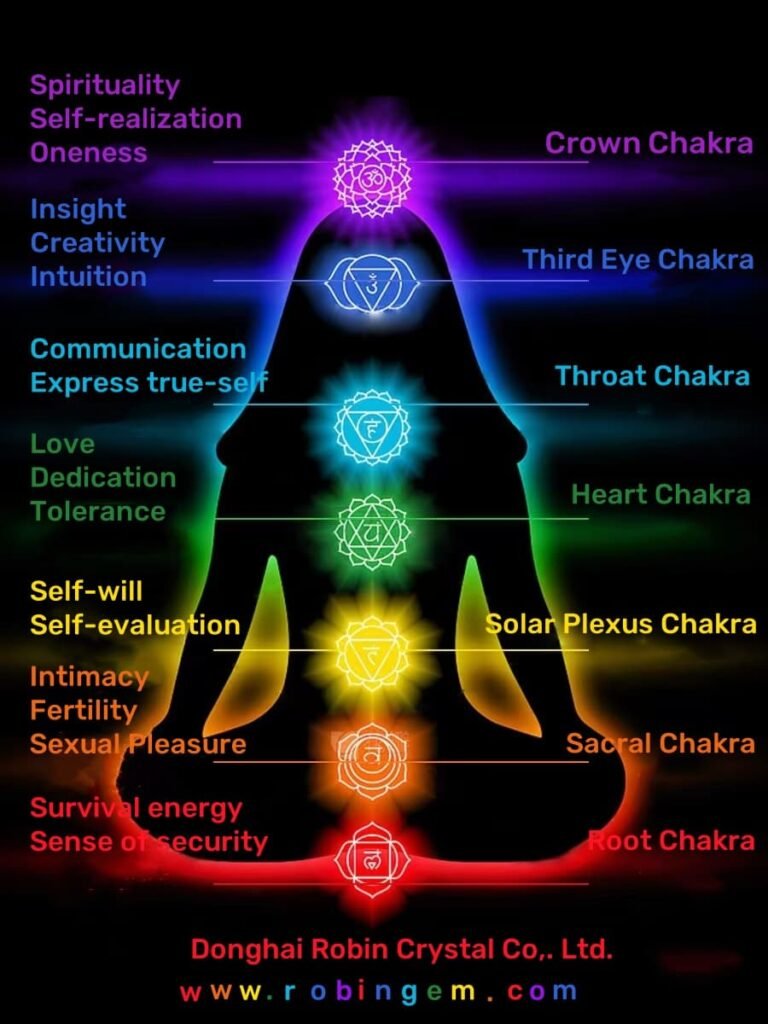Chakras are energy centers in the body that play a crucial role in maintaining physical, emotional, and spiritual well-being. The concept of chakras originates from ancient Indian traditions and is integral to practices such as yoga and meditation.
The Seven Main Chakras
- Root Chakra (Muladhara): Located at the base of the spine, it is associated with survival, stability, and grounding. Its color is red.
- Sacral Chakra (Svadhisthana): Found below the navel, this chakra governs creativity, sexuality, and emotional health, represented by the color orange.
- Solar Plexus Chakra (Manipura): Situated above the navel, it is linked to personal power, confidence, and self-esteem, with yellow as its color.
- Heart Chakra (Anahata): Located at the center of the chest, it represents love, compassion, and connection, symbolized by green.
- Throat Chakra (Vishuddha): This chakra is responsible for communication and self-expression, located at the throat and represented by blue.
- Third Eye Chakra (Ajna): Positioned between the eyebrows, it is associated with intuition and insight, represented by indigo.
- Crown Chakra (Sahasrara): Located at the top of the head, it connects to spiritual awareness and enlightenment, symbolized by violet or white.

- Chakra Balancing and Healing
Balancing the chakras is essential for maintaining a healthy flow of energy throughout the body. When chakras are blocked or unbalanced, it can lead to physical and emotional issues. Various methods are employed to balance chakras, including:
- Meditation: Guided meditations focusing on each chakra can help clear blockages and promote healing.
- Crystals: Specific crystals are believed to resonate with each chakra, aiding in their healing and balancing.
- Sound Healing: Frequencies and sounds can be used to align and balance the chakras, enhancing relaxation and well-being.
- Yoga: Certain yoga poses target specific chakras, helping to open and balance them through physical movement and breath control.
